Search
Remove Ads
Advertisement
Summary 
Loading AI-generated summary based on World History Encyclopedia articles ...
Search Results
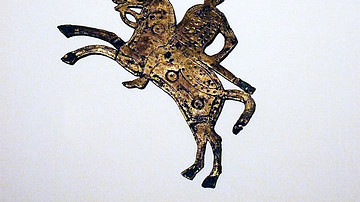
Definition
Lombards
The Lombards were a Germanic tribe that originated in Scandinavia and migrated to the region of Pannonia (roughly modern-day Hungary). Their migration is considered part of "The Wandering of the Nations" or "The Great Migration", which was...
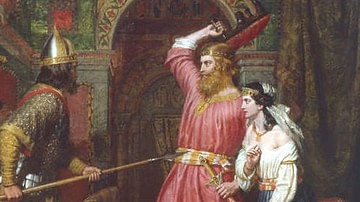
Definition
Alboin
Alboin (r. 560-572 CE) was a king of the Lombards who led his people into Italy and founded the Kingdom of the Lombards which lasted from 568-774 CE. His father was Audoin, King of the Lombards, and his mother Queen Rodelinda. He was most...
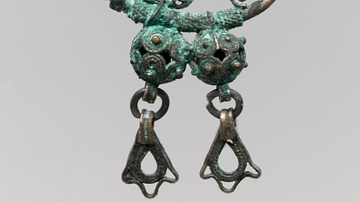
Definition
Avars
The Avars were a confederation of heterogeneous (diverse or varied) people consisting of Rouran, Hephthalites, and Turkic-Oghuric races who migrated to the region of the Pontic Grass Steppe (an area corresponding to modern-day Ukraine, Russia...
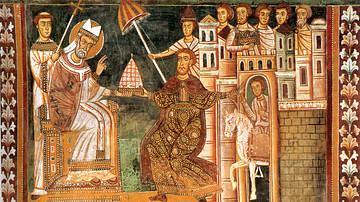
Definition
Donation of Constantine
The Donation of Constantine (Donatio Constantini or the Donatio) is a medieval forgery dated to the 8th century purporting to be an original 4th-century document in which the Roman emperor Constantine the Great (r. 306-337) granted supreme...
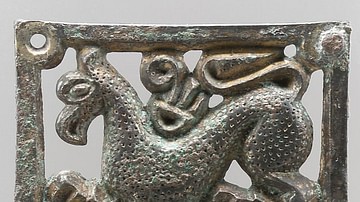
Definition
Bayan I
Bayan I (reigned 562/565-602 CE) was a king of the Avars, a confederation of heterogeneous people who migrated from the region of Mongolia, north of China, in 552 CE and came in contact with the Eastern Roman Empire c. 557 CE. Bayan I is...

Definition
Charlemagne
Charlemagne (Charles the Great, also known as Charles I, l. 742-814) was King of the Franks (r. 768-814), King of the Franks and Lombards (r. 774-814), and Holy Roman Emperor (r. 800-814). He is among the best-known and most influential figures...
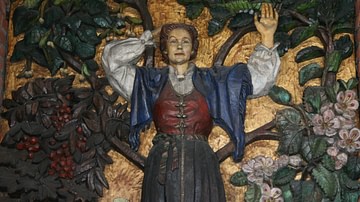
Definition
Frigg
Frigg is a fertility goddess in Norse mythology. She is the wife of Odin, king of the gods, and is the greatest goddess of the Norse pantheon. She is thought to have developed, along with the goddess Freyja, from an earlier fertility deity...

Definition
Ostrogoth
The Ostrogoths were the eastern tribe of the Goths (a Germanic people) who rose in power in the area north of the Black Sea. The designation, Ostrogoth, taken to mean 'Eastern Goth', actually means 'Goths glorified by the rising sun' and...
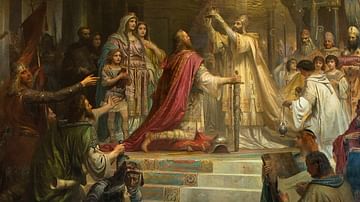
Definition
Carolingian Dynasty
The Carolingian Dynasty (751-887) was a family of Frankish nobles who ruled Francia and its successor kingdoms in Western and Central Europe during the Early Middle Ages. The dynasty expanded from Francia as far as modern Italy, Spain, and...
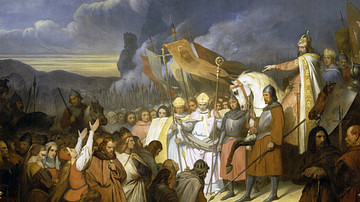
Definition
Saxon Wars
The Saxon Wars (772-804) were a series of conflicts between the Franks under Charlemagne, who sought to conquer Saxony and convert the populace to Christianity, and the Saxons who resisted. The conflict lasted over 30 years through 18 campaigns...